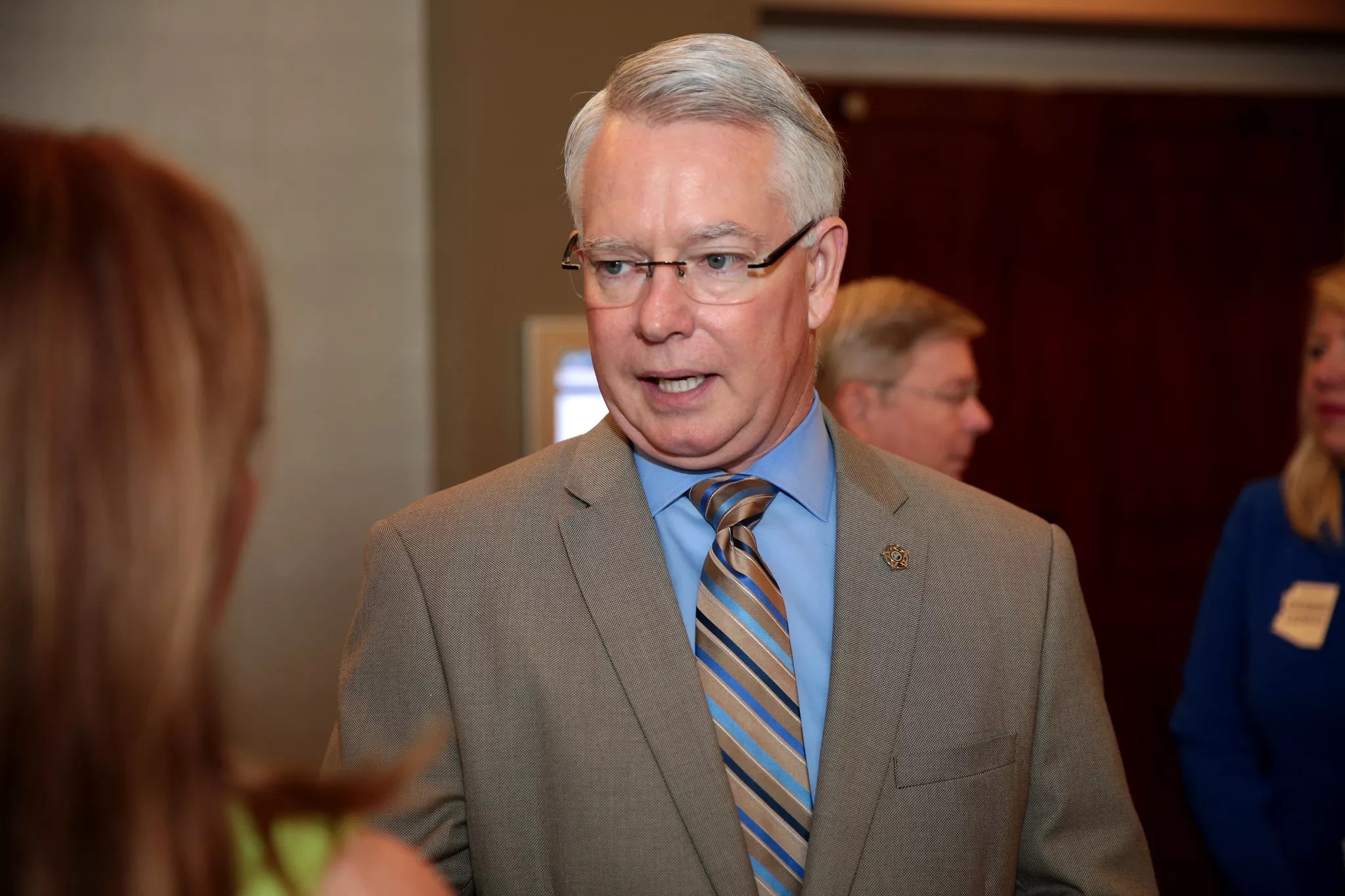

Audio By Carbonatix
Maricopa County Attorney Bill Montgomery admitted to the ACLU last month that his office made a mistake when it directed medical marijuana patient Stephanie Parisi to a drug diversion program under threat of felony charges.
“She should not have been directed to [drug diversion program] TASC under the circumstances,” Montgomery wrote to the group’s criminal justice lawyer, Jared Keenan, in an April 26 email the ACLU shared with Phoenix New Times.
Keenan said that the county attorney’s office had also sent him a “refused prosecution” letter, indicating that it would not file charges against Parisi, who did not have to complete TASC.
If the ACLU learned of other cases “where we made a mistake in directing anyone similarly situated to a diversion program or filed formal charges, you have my commitment to review the matter quickly and take appropriate action,” Montgomery added.
Montgomery is an ardent opponent of marijuana in all forms and for any purpose, but recently, he and other county attorneys have said they would hold off prosecuting qualified medical marijuana patients for possessing cannabis extracts. They are awaiting a decision by the Arizona Supreme Court, which is weighing whether or not the 2010 Arizona Medical Marijuana Act covers extracts and products that contain it, like edibles and wax.
The legality of these extracts has been in limbo for months. The state Supreme Court said in January that it would review the case on medical marijuana extracts, and heard oral arguments March 19.
Nevertheless, on March 5, the Maricopa County Attorney’s Office sent a letter to Parisi, who holds a valid, state-issued medical marijuana card, saying that unless she wanted to face charges for possession for use of narcotics, a Class 4 felony, she would have to enroll in TASC. The controversial program would have cost her at least $2,935, according to fees specified in that letter, and it would have taken an untold amount of time.
Parisi was pulled over about a year earlier, in Surprise, for a cracked windshield, she said. When the officer learned that she had shatter – a glass-like marijuana concentrate, which was still in pouches from the dispensary where she’d bought it – he confiscated it, even though she showed him her medical marijuana card. He didn’t arrest her, but said she might hear from the prosecutor’s office, Parisi recalled.
When the letter arrived a year later, “I felt like I was being extorted,” Parisi told New Times in mid-April, before Montgomery admitted to his office’s mistake. Panicked and determined not to go to prison, she set up an appointment with TASC.
She also called the hotline for the Arizona chapter of NORML, a marijuana advocacy organization, and was referred to the ACLU and Keenan. On April 4, the civil-liberties organization asked Montgomery’s office to stop prosecuting or threatening to prosecute medical marijuana patients.
At the time, the Maricopa County Attorney’s Office implied that it was doing no such thing.
“The letter sent by the ACLU did not offer any information on a case or person involved in the prosecutions they were referencing,” Amanda Steele, a spokesperson for the office, told New Times in an email on April 11.
“It is the official position of this office that we do not prosecute individuals who have a valid qualified patient card and possess/use items that meet the requirements of [the Arizona Medical Marijuana Act]. This includes cannabis products such as concentrates,” she added.
Montgomery reiterated that position in his email to the ACLU, with a slight twist.
“Unless and until the Arizona Supreme Court establishes that cannabis is not covered by the AMMA, Office guidelines are to forego prosecution of qualified patients with a valid [medical marijuana] card, regardless of whether the resolution may be to offer a diversion or deferred prosecution program,” he wrote.
To Parisi, that wording was not reassuring. Although she was relieved to learn that for now, she won’t have to spend thousands of dollars to enroll in TASC, the reprieve wasn’t a guarantee: Could she eventually be prosecuted for possessing the medical marijuana that she’d bought at a state-licensed facility?
“If the [Supreme Court justices] say it wasn’t protected, I don’t know what’s going to happen then,” she told New Times on Tuesday.
It’s also unclear how much effort Montgomery’s office is putting into adhering to its own guidelines and ensuring that local law enforcement officers are aware of them, in order to prevent “mistakes” like the one it made with Parisi.
Valley police are still arresting qualified patients for possessing products that contain them, and they are confiscating the evidence.
Steele said that the attorney’s office has “communicated in general our position on charging such cases” with law enforcement. Asked for more detail, Steele said, “Communications with members of this office and law enforcement happens daily … However in general we have offered our position verbally though [sic] conversations as we are asked.”
Jared Keenan, the ACLU’s attorney, said that prosecutors should be more proactive.
“Prosecutors should be informing police in their jurisdiction that they should not be arresting these patients, but patients keep getting arrested,” he said. State-licensed dispensaries still sell products containing marijuana extracts, which means that patients have no reason to believe that it’s not legal, he pointed out.
“If they know that patients don’t have notice that some activities are illegal, then [prosecutors] shouldn’t be going after them,” Keenan said.